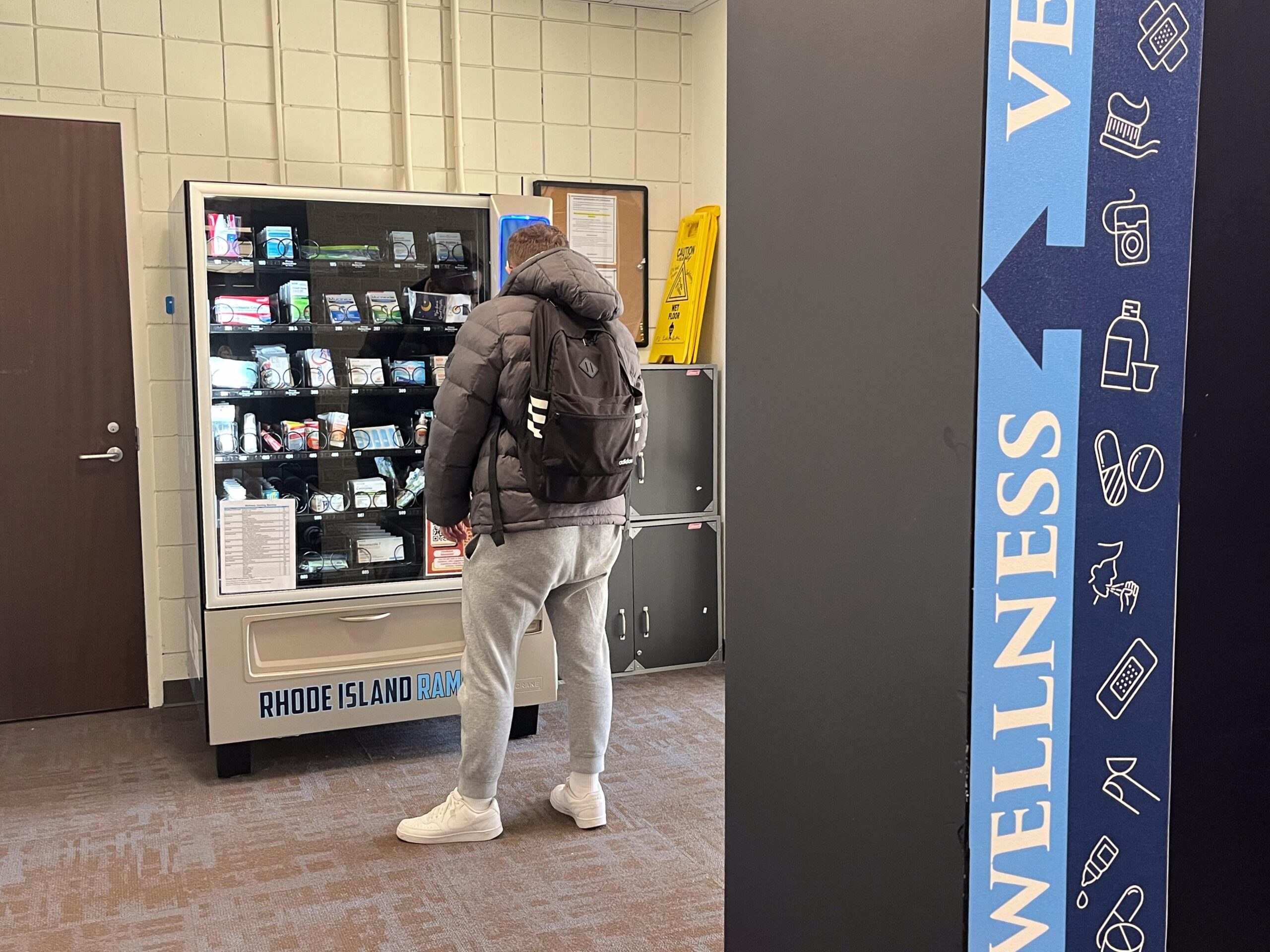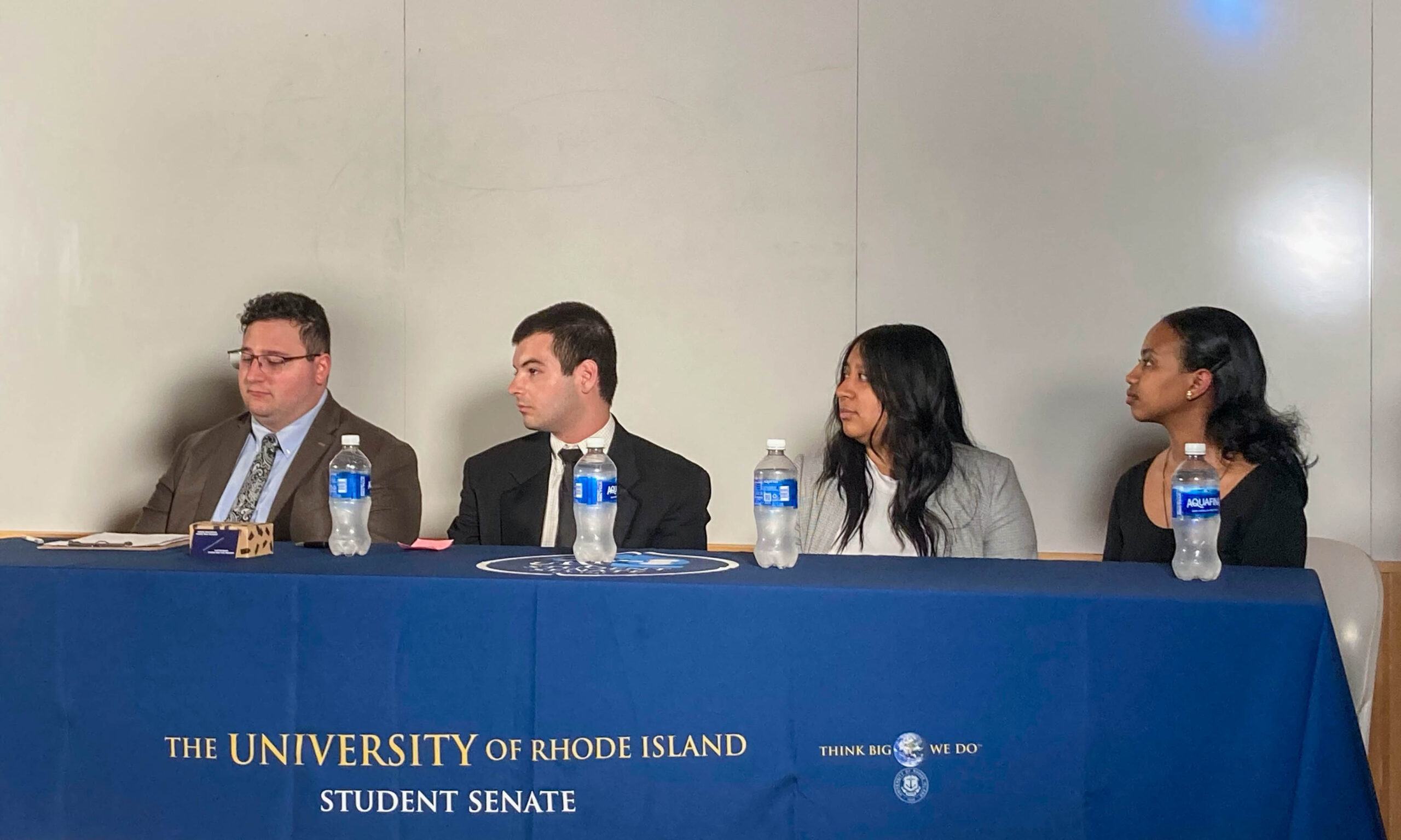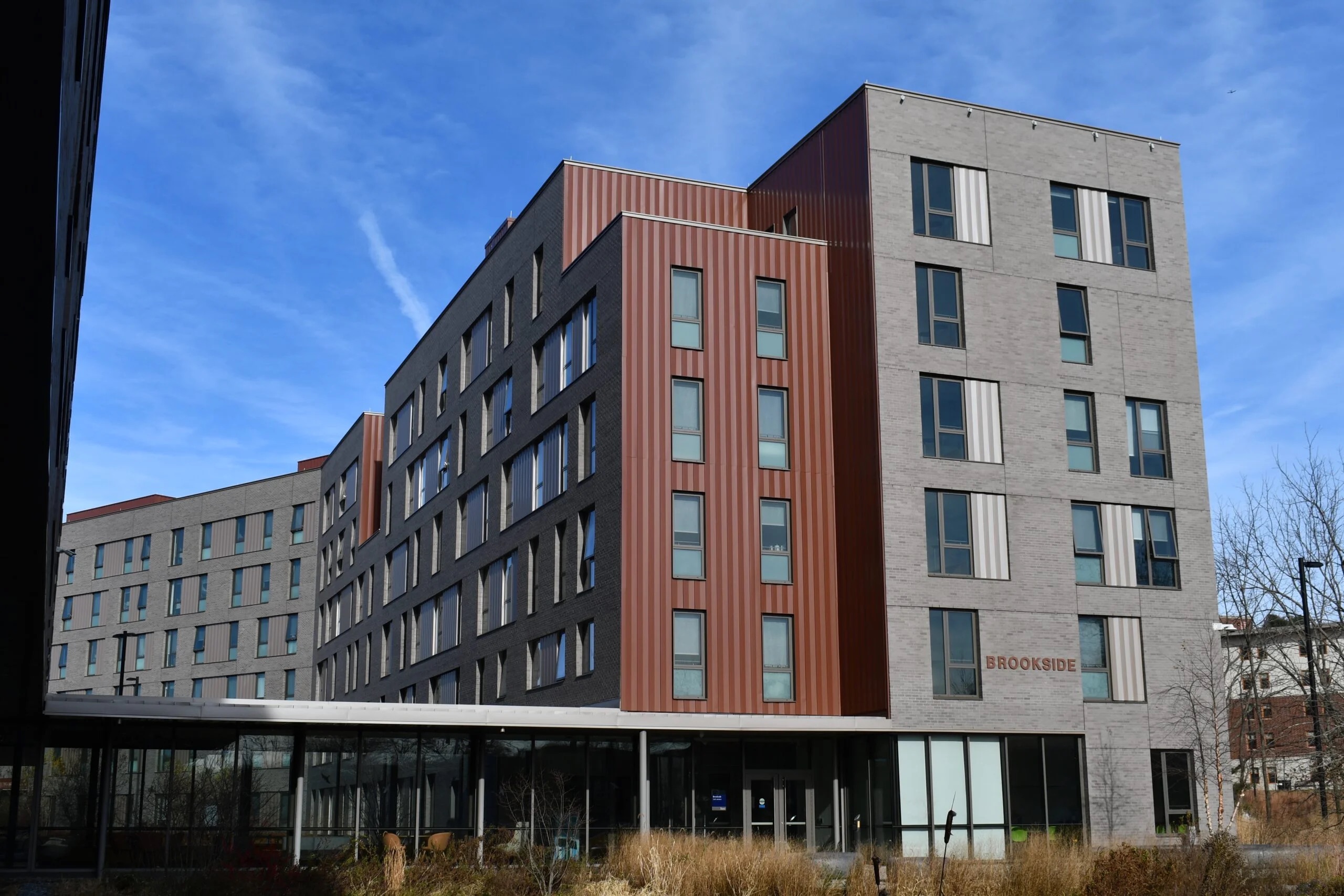The University of Rhode Island broke new ground on Feb. 5 with the introduction of a “wellness vending machine,” located in the 24 Hour Room in the Robert L. Carothers Library and Learning Commons.
The wellness vending machine is a place where students can anonymously purchase health and wellness related items that they might normally obtain from Health Services, but without having to talk to a pharmacist or wait for a building to open.
Products range from 10 cents to $8, including items for reproductive health, over-the-counter items, sleep aids, referral to counseling services and Naloxone from the community first responder program.
“Just as if you walked [into Health Services] and you said ‘I need ibuprofen and Benadryl,’ you would get it,” Jeffrey Bratberg said, residency public health project leader and clinical professor.
Other colleges and universities around the United States have also implemented wellness vending machines and URI has joined the trend.
“We are the first in the state to offer this and that’s huge,” Jessica Greene, assistant director of Health Promotion and Wellness, said.
The initial idea emerged in the fall of 2022 when Pharm.D. fourth-year student Hannah Iarussi attended a pharmacy organizational conference, according to Bratberg. From there, Iarussi alongside two other fourth-year Pharm.D. students, Emily Lancor and Amanda Blais, drafted a project proposal for the vending machine which was approved almost immediately.
The machine itself came from the URI Campus Store and was used for bookstore products previously, but they agreed to the plan and ownership was given to the College of Pharmacy, according to Bratberg. Those who led the project took surveys of students’ preferences for what they would like to have in a vending machine.
“Things like EC [emergency contraception] and pregnancy tests were top of the list,” Bratberg said.
Other items like glasses repair kits emerged among the results fairly often, Bratberg said. The 24 Hour Room in the library was chosen specifically for the location, based on accessibility.
“We know these products are safe and effective,” Bratberg said. “Let’s put them in a place where they are 24-hour accessible.”
Items in the vending machine will also be seasonally updated. For the warmer months, the team will add sunscreen and bug spray. There are informational panels listed to the side of the vending machine with information about some of the products.
To collect usage and effectiveness feedback, the vending machine provides anonymous data saying what products were sold when. This data indicates that students use the vending machine after Health Services’ hours, which are from 8 a.m. to 8 p.m. on weekdays and 10 a.m. to 4 p.m. on Saturdays and Sundays.
What impact will this have on URI as a whole? Other organizations have searched for this answer as well.
“The American College Health Association, which is our largest college health association, wrote guidelines on this, saying, ‘Why have a vending machine?’” Jennifer Hodshon, director of Health Services said. “They’re saying [that] lack of access would possibly impact attendance and overall academic performance.”
Celeste DiCesare, the executive assistant at the library, interim dean, Peter Larsen, IT director Shaun Kavanagh and the Vice President for Student Affairs Ellen Reynolds made significant contributions to this project, Greene said.
“They’ve worked so hard with us to get this set up and ready,” Greene said.
By using the wellness vending machine, students and faculty can now anonymously access Health Services’ products at any time in the 24 Hour Room using their URI ID for a variety of categories, including pain relief, respiratory health, wellness and more.




